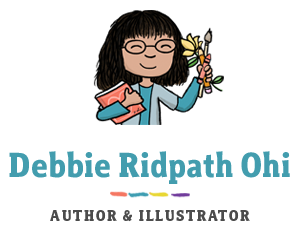In response to my post, Writing Contests: Always Read The Fine Print, one of the owners of the insurance website wrote:
Hello Debbie,
My name is Mike Kim and I am one of the owners of Affordable Insurance Options Online. I am writing this comment in response to the “warning” you posted regarding the essay contest we are currently holding.
First of all, I greatly admire the sense of duty you displayed to your visitors by creating this post, and the time and energy you put into it. It’s obvious that you care greatly for your visitors and are going above and beyond to look out for their best interest.
I do, however, have to take issue with the negative attention you are bringing to what we believe is a legitimate and well intentioned writing contest. You discuss three major points why you believe our contest should serve as a cautionary tale.
1) We assume the rights to the content submitted. The main reason for this contest is to better inform our visitors on the importance of adequate insurance coverage, and to do so in a fun and entertaining way. There is no way that we could accomplish this without publishing the submitted entries and allowing our visitors to read the true life stories. We are in no way, shape or form trying to conceal the fact that we will be publishing the content, as many other writing contests do. That fact is disclosed in plain view, in the section above the area in which they submit their essay. Those who don’t want their essays published can simply choose to not enter the contest.
2) People who enter our contest are put on our mailing list. Actually, they gain access to our online newsletter that offers valuable information on insurance related topics, and other financial matters. Not only are people made aware of this in the contest guidelines, they are also again made aware of this when they submit an entry. In fact, they have to click a confirmation link that tells us it’s ok to send them the newsletter. Of course, the newsletter is free and if they don’t want it, they can cancel at any time.
3) If we are not able to contact the winners in five days, alternate winners will be chosen. We do not want to delay notifying the winners and publicly congratulating them for their accomplishment. In this technologically advanced day and age, contacting the winners should not take more than a few days. If it does, chances are the contact information provided is invalid. In this case, we want to make sure to offer the cash prize to the next worthy applicant who would surely be thrilled to be named a winner. We strongly believe that all applicants will not only see this as fair and ethical, but they will actually appreciate not having to wait weeks or months to be notified if they win, just because we are having trouble contacting someone else.
Because of the reasons detailed above, and the fact that it is totally free to enter our contest, I ask you to please reconsider your stance. We here at AIOO take great pride in our site, this contest, and our general moral and ethical business practices. I would like to reiiterate that your dedication to your visitors is commendable and I don’t fault you one bit for creating this post. Even if I am unable to change your mind, I have great respect for you and your website. Having the freedom to disagree is one of the many things that makes this country so great!!! Thank you very much for your time, Mike
While I appreciate the prompt and courteous response, I still can’t recommend that writers enter this contest. You may win a cash prize, it’s true. But whether or not you win, you are giving up all your rights to work you have created.
If you’re hazy on the issue of rights and copyright, you should read Understanding Rights and Copyright by Moira Allen. An excerpt from that article:
All Rights. This term, loathed by writers, is often used by publishers who want to avoid the need to buy additional rights later. By acquiring all rights, for example, a publisher acquires electronic rights as well.
Once you’ve sold “all rights” to a piece, you can never sell that piece again. All you retain is the right to claim authorship. You may even be precluded from selling revisions or rewrites of the same material.
That doesn’t mean that you should never sell “all rights.” In some cases, the benefits of a such sale may outweigh the lost potential for resale, especially if there is a limited market for that particular work. If you do sell “all rights,” however, be sure that you are being adequately compensated. (For more information on this topic, see Selling All Rights: Right or Wrong?
Wouldn’t your time and energy be better spent working on your other writing projects? Or at least entering writing contests which let you keep the rights to your work so you can use it elsewhere? This contest also requires that the content be unique, which means you’d be writing content specifically for this site and this site only.
In the end, of course, the choice is yours. As Mike points out, the company is very upfront about its submission guidelines.
Helpful resources for writers about writing contests:
Writer Beware Guide To Writing Contests and Awards
Finding Legitimate Writing Markets and Contests – Canadian Authors Association
Writing Contests: When Winners Are Losers – by Moira Allen

